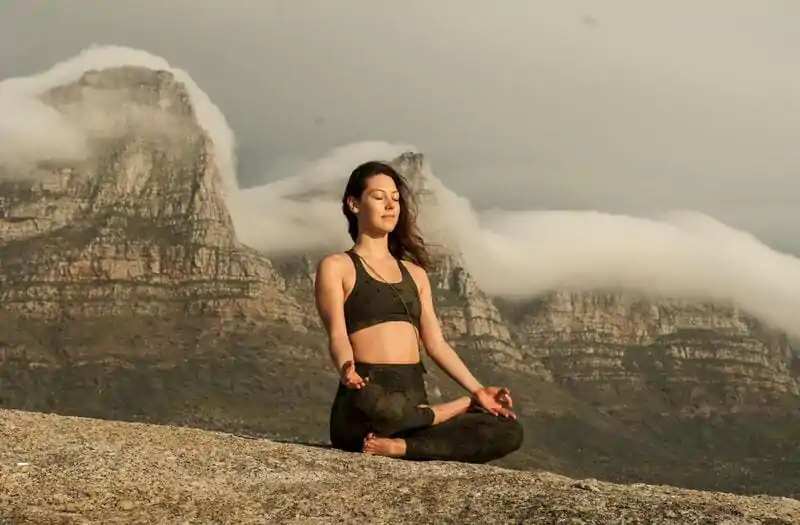The Power of Reflective Meditation
Meditation is a practice that has been around for centuries and is known for its numerous benefits on mental, emotional, and physical wellbeing. It involves focusing one’s attention and eliminating the stream of thoughts that often clutter the mind. Through regular meditation, individuals can achieve a state of calmness, clarity, and inner peace.
One important aspect of meditation is self-reflection. This involves introspection and examining one’s thoughts, emotions, and actions in a non-judgmental manner. Self-reflection allows individuals to gain insights into themselves and their lives, leading to personal growth and improved overall wellbeing.
Understanding Self-Reflection
Self-reflection is an essential practice that allows individuals to gain a deeper understanding of themselves, their thoughts, feelings, and actions. It involves taking a step back from the daily hustle and bustle of life to examine one’s experiences, beliefs, and values. By engaging in self-reflection, individuals can gain valuable insights that contribute to personal growth and development.
At its core, self-reflection involves introspection and self-awareness. It provides an opportunity to explore our inner world and make sense of our thoughts and emotions. By consciously examining our experiences, we can identify patterns, strengths, weaknesses, and areas for improvement. This heightened self-awareness enables us to understand better why we react or behave in certain ways.
In addition to personal development benefits, self-reflection enhances emotional intelligence by improving empathy towards others. When we understand ourselves better through reflection, it becomes easier for us to empathize with the experiences of others. This emotional intelligence strengthens relationships and fosters effective communication.
The Practice of Reflective Meditation: A Path to Inner Clarity

Reflective meditation, also known as “meditation for self-reflection”, is a mindfulness practice that encourages introspection and self-examination. Unlike traditional meditation techniques that focus on breath control or mantra repetition, “meditation for self-reflection” invites individuals to explore their thoughts, emotions, and experiences in a structured and purposeful way. It aims to cultivate self-awareness, self-acceptance, and a greater understanding of one’s inner world.
By practicing reflective meditation, individuals can gain clarity about their life purpose, values alignment, and areas where personal growth is needed. It helps identify negative thought patterns or limiting beliefs that may be hindering progress or causing distress.
Types of Meditation Suitable for Reflective Meditation
Here are different types of meditation you can integrate into your daily life for self-reflection.
Mindfulness Meditation
This form of meditation involves paying attention to the present moment without judgment. By observing thoughts, sensations, and feelings as they arise, individuals can gain insight into their inner processes.
Loving-Kindness Meditation
Also known as Metta meditation, this practice cultivates feelings of love and compassion towards oneself and others. It helps in developing empathy and fostering positive relationships.
Insight Meditation
This technique involves contemplating specific themes or questions for deeper understanding and clarity. It encourages profound insights into one’s experiences and fosters personal growth.
Techniques for Reflective Meditation
Here are some effective ways you can use to start your meditation.
Find a Quiet Space
Choose a serene and distraction-free environment for your reflective meditation practice. This can be indoors or outdoors, as long as you can maintain focus.
Comfortable Posture
Sit upright with your spine straight and your hands resting on your lap. If it feels more comfortable for you, you can also lie down.
Set an Intention
Begin your practice by setting an intention or a question you wish to explore during meditation. This will give your session purpose.
Mindful Breathing

Start with a few minutes of mindful breathing to calm your mind and center yourself. Focus on your breath as you inhale and exhale slowly.
Self-Reflection
Once you are centered, begin to explore your chosen question or intention. Allow thoughts and feelings to arise naturally without judgment. Observe them like a curious observer.
Journaling
Some individuals find it helpful to keep a journal during reflective meditation. Write down any insights or reflections that emerge from your practice.
Gratitude and Closure
Before concluding your session, express gratitude for the insights gained and take a moment to set intentions for how you will apply them in your life.
Benefits of Meditation for Self-Reflection and Reflective Meditation
Meditation, since ancient times, has been recognized as a powerful practice for cultivating inner peace and tranquility. It is not only a means to relax and unwind but also a valuable tool for self-reflection and personal growth. In particular, two forms of meditation, namely self-reflection and reflective meditation, offer unique benefits that can enhance our overall wellbeing.
Cultivating Mindfulness and Present-Moment Awareness
One of the main benefits of self-reflection and reflective meditation is their ability to cultivate mindfulness and present-moment awareness. By turning our attention inward, we become more attuned to our thoughts, feelings, and bodily sensations. This heightened awareness allows us to fully engage with the present moment, leading to a greater sense of clarity and focus in our daily lives.
Developing Increased Clarity and Insight into One's Thoughts and Emotions
Self-reflection involves consciously examining our thoughts, emotions, beliefs, and behaviors. Through regular practice, we develop increased clarity about our own patterns of thinking and feeling. This self-awareness enables us to gain insight into any negative or limiting thought patterns that may be holding us back. By identifying these patterns, we can then work towards replacing them with more positive and empowering ones.
Promoting Emotional well-being and Stress Reduction through Self-Compassion
Reflective meditation involves compassionately exploring our own experiences without judgment or criticism. This practice allows us to develop self-compassion by cultivating acceptance of ourselves as imperfect beings. As a result, we become less harsh on ourselves during challenging times, leading to greater emotional wellbeing and reduced stress levels.
Incorporating self-reflection or reflective meditation into your daily routine can have profound effects on your overall mental health and emotional wellbeing. – Journaling can be a helpful tool during self-reflection, allowing you to explore your thoughts more deeply.
Remember, the benefits of meditation for self-reflection are not achieved overnight. Consistency and patience are key as you embark on this journey of self-discovery and personal growth. By dedicating time to these practices, you can cultivate mindfulness, gain insight into yourself, and foster emotional well-being in your life.
Integrating Self-Reflection into Your Daily Routine

By incorporating reflective meditation into our daily routine, we can enhance our self-reflection skills and apply them to various aspects of our lives. Establishing a consistent meditation routine is key to integrating self-reflection into daily life. Consistency is key, as regular meditation sessions create a habit that becomes an integral part of your daily routine.
In addition, journaling or contemplative practices can further enhance meditation for self-reflection. After each meditation session, take some time to reflect on your experience and write down any thoughts or insights that arise. This process allows you to delve deeper into your emotions and gain clarity on any challenges or patterns you may face.
The true value of self-reflection lies in applying the lessons learned from it to personal growth and decision-making. As you deepen your awareness through meditation and reflection, you develop a better understanding of yourself – your strengths, weaknesses, values, and aspirations.
Use this knowledge to set meaningful goals aligned with your authentic self. When faced with decisions or challenges, take a moment for introspection before responding impulsively. Self-reflection allows you to tap into your inner wisdom and make choices that align with your values and long-term well-being.
Embrace the power of self-reflection and discover the profound impact it can have on your overall well-being.
A clearer state of mind
In a world filled with constant distractions and external stimuli, reflective meditation offers a valuable opportunity to turn inward, explore your inner world, and nurture self-awareness. By embracing this practice, you can gain deeper insights into your thoughts, emotions, and behaviors, leading to personal growth, improved emotional wellbeing, and a greater sense of purpose in life.
Make reflective meditation a regular part of your routine, and watch as it transforms your relationship with yourself and the world around you. Would you like to explore the benefits of reflective meditation further? Join our (free!) live guided Inner Peace Sessions!







